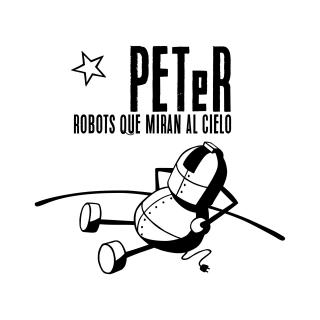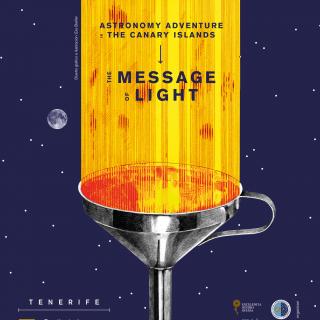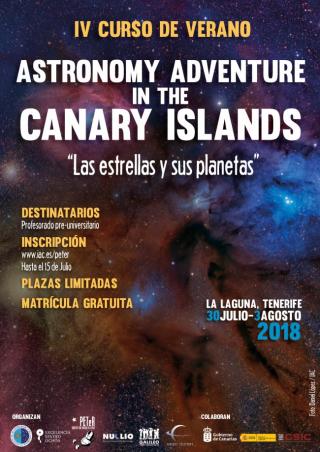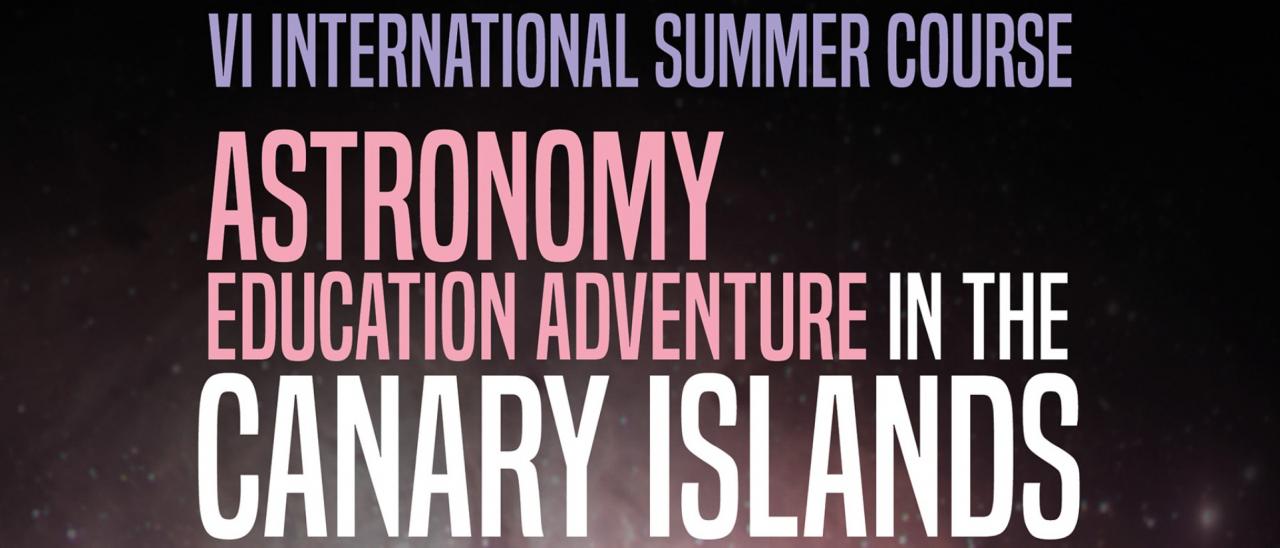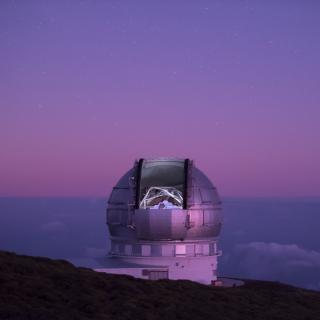The new astronomical adventure organized by the Instituto de Astrofísica de Canarias (IAC) together with other educational institutions will take place next month with a program that will revolve around the research of the stars and their planets.
The International Summer Course Astronomy Education Adventure in the Canary Islands is holding its annual teacher training event with a special edition, entirely online, in which teachers from all over the world can participate. The sixth edition of this course, which will run from 20 to 24 July, includes conferences, astronomical software workshops and hands-on activities that will have as their central theme "Exploring stars and other worlds".
The course is part of the IAC's Educational Project with Robotic Telescopes (PETeR) and is carried out in collaboration with the Núcleo Interactivo de Astronomia (NUCLIO, Portugal), the Faulkes Telescope Project (UK), the National Schools’ Observatory (LJMU, UK) and the educational initiatives CesaR - Cooperation through Education in Science and Astronomy Research (ESAC, ESA-INTA-ISDEFE, Spain) and “CosmoLAB: El Sistema Solar como laboratorio en el aula” (IAC, Tenerife), all of them institutions and projects aimed at promoting interest in science and technology among schoolchildren through astronomy, astrophysics and related areas. It is also partially funded by the European project Our Space Our Future.
During five days, participating teachers will be able to discover the secrets of the stars and their planets, understand how they are detected and how their properties are studied, learn how to program observations with professional robotic telescopes, as well as practice with visualization and analysis programs of astronomical images specially developed for educational use and with real data obtained with the Liverpool Telescope, the LCO network telescopes and ESA's scientific space-missions.
"Our aim is for teachers to be able to transfer this knowledge and tools, together with active learning methodologies, to the content of their curriculum and thus bring research and exploration of the Universe closer to their students in a practical and stimulating way," explains Nayra Rodríguez Eugenio (IAC), coordinator of PETeR and director of the course together with Rosa Doran (NUCLIO).
The course is aimed at teachers of all educational levels and subjects who wish to immerse themselves in a real experience with the STEAM (Science, Technology, Engineering, Arts and Mathematics) areas. “We believe that learning improves when students are embedded in interdisciplinary experiences and in environments that seamlessly integrate horizontal (across subject domains) and vertical (across different grade levels) articulation”, says Rosa Doran.
The training will be given in English and in virtual mode, using a videoconference software, so to participate a computer with Internet connection is required. It will last 25 hours and will be certified by the IAC and NUCLIO, within the framework of the European project Galileo Teacher Training Program and the European School Innovation Academy.
There is no registration fee, but it is necessary to register, as the number of places available is limited. Registration will be open until July 10th (or until full capacity is reached) and places will be allocated in strict order of registration.
A total of 140 educators from 12 countries (Spain, Portugal, United Kingdom, Italy, Germany, Austria, Lithuania, Netherlands, Switzerland, United States, Turkey and Malaysia) have participated in the five editions held so far. In this online edition, up to 100 teachers from all over the world will be able to take the course.
More information:
Previous editions:
Contact: Nayra Rodríguez Eugenio: peter [at] iac.es (peter[at]iac[dot]es)
